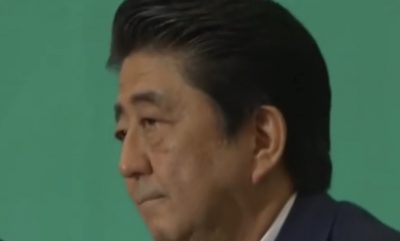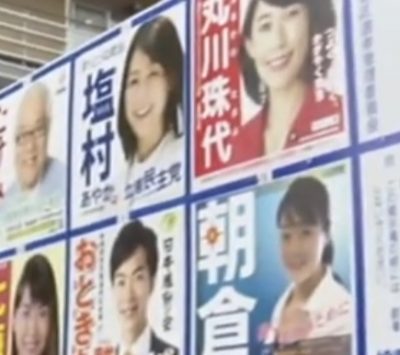Abe and ruling political bloc wins Upper House election in Japan but voter apathy is high
Sawako Utsumi and Lee Jay Walker
Modern Tokyo Times

Prime Minister Shinzo Abe of the Liberal Democratic Party (LDP) and the ruling bloc partner Komeito won the majority of seats in the Upper House election that was contested. Hence, Abe’s run of electoral victories is now six and clearly, the LDP and Komeito look set to continue this run into the next future election based on constant political stability.
In truth, no political party will be fully excited by the results because not only was voter turnout extremely low, but real gains for either amending the Constitution that is desired by Abe, or a reinvigorated opposition didn’t emerge. Instead, the election provided a steady ship in all directions.
Yes, the main opposition party, the Constitutional Democratic Party of Japan (CDP), did increase its representation from 24 to 32. However, given the unhappiness in many quarters of the electorate about certain important issues, then this increase isn’t groundbreaking. This notably applies to issues related to the pension system and the proposed increase of consumption tax – and other important areas.
At the same time, the LDP and other political parties that are open to amending the Constitution fell short of the supermajority that is required. Of course, this will not stop Abe from desiring to amend the Constitution. After all, Abe knows that the two-thirds majority in both political chambers isn’t that far away. This is based on the support of other political parties or independents that are open to changing the Constitution.

Opposition political forces had hoped to win over people by proposing to curtail the LDP’s desire to put bottlenecks on rising pension payouts. Likewise, opposition political forces stipulated that they would help poor pensioners by increasing benefits, in order to protect the most vulnerable in society. Despite this, and opposing the proposed increase in consumption tax, the majority of people who voted were not swayed to abandon the LDP and Komeito.
Abe stipulated, “I believe that the people of Japan have made the judgment that we should carry out policies firmly based on a stable political foundation, and that we should carry out diplomacy based on that foundation and protect national interests.”
Sadly, irrespective of the reasons, the voter turnout fell just below 49 percent and this says much about voter apathy. Hence, the second-lowest electorate turnout occurred during this Upper House election. Thereby, voter apathy should worry the political elites. After all, the election was based on extremely serious issues; despite this, the majority of Japanese nationals feel disillusioned or uninterested by politics.
Overall, the election didn’t change the dynamics of the Upper House to any significant degree. Abe will be content and the main opposition party will also be pleased that they have increased their political representation.

PLEASE SUPPORT MODERN TOKYO TIMES by DONATING
Modern Tokyo News is part of the Modern Tokyo Times group
DONATIONS to SUPPORT MODERN TOKYO TIMES – please pay PayPal and DONATE to sawakoart@gmail.com
http://moderntokyotimes.com Modern Tokyo Times – International News and Japan News
https://www.pinterest.co.uk/moderntokyotimes/ Modern Tokyo Times is now on PINTEREST
http://sawakoart.com – Sawako Utsumi personal website and Modern Tokyo Times artist
https://moderntokyonews.com Modern Tokyo News – Tokyo News and International News
PLEASE JOIN ON TWITTER
https://twitter.com/MTT_News Modern Tokyo Times